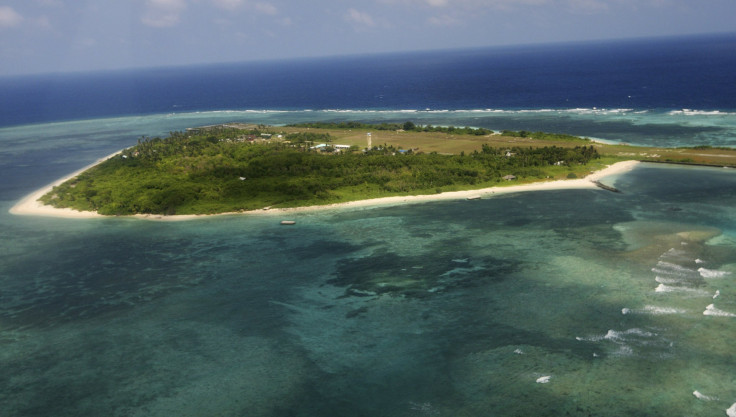Beijing Building 'Great Wall Of Sand' With Artificial Islands In South China Sea: US Official

U.S. top commander said Tuesday that China’s unexpected land reclamation in the South China Sea was a serious cause of concern as it raised questions over whether Beijing wanted to resolve issues or confront other countries who also claim the set of islands. U.S. Pacific Fleet Commander Admiral Harry Harris Jr. reportedly said that China was creating a "great wall of sand with dredges and bulldozers over the course of months."
Harris said that the construction continued in the region where China had created artificial land mass spreading over 1.5 miles.
Besides China, which claims almost the entire South China Sea, countries including Brunei, Taiwan, Malaysia, the Philippines, and Vietnam have also claimed islands in the region. These countries have been concerned about construction at the submerged reefs on the Spratly Islands, which China is turning into artificial land with buildings, runways and wharves. The landmass would be an ideal ground for China’s military training and other Southeast Asian nations are worried this would strengthen Beijing’s claims, the Associated Press reported.
"What's really drawing a lot of concern in the here and now is the unprecedented land reclamation currently being conducted by China," Harris said, according to the AP, adding: "China is building artificial land by pumping sand on to live coral reefs — some of them submerged — and paving over them with concrete. China has now created over 4 square kilometers (1.5 square miles) of artificial landmass."
Harris, who spoke Tuesday at a naval security conference in Australia, said, according to AP, that the construction of artificial land mass "raises serious questions about Chinese intentions." China has said that its construction in the region is justified and reasonable, the Wall Street Journal reported.
Harris said that the U.S., which has been criticized by Beijing for commenting on China’s claims, is committed to a rebalance of forces. He added that the U.S. was on schedule to get 60 percent of the U.S. Navy based in the Pacific Fleet by 2020, the Journal reported.
"By maintaining a capable and credible forward presence in the region, we're able to improve our ability to maintain stability and security," Harris said, according to the AP, adding: "If any crisis does break out, we're better positioned to quickly respond."
Australia, which has been an ally of the U.S., has also expressed concern over China’s claims. Last year, Australia had signed a deal with Japan to boost military cooperation and exercises to counter China’s fast growing claims, the Journal reported.
© Copyright IBTimes 2024. All rights reserved.












